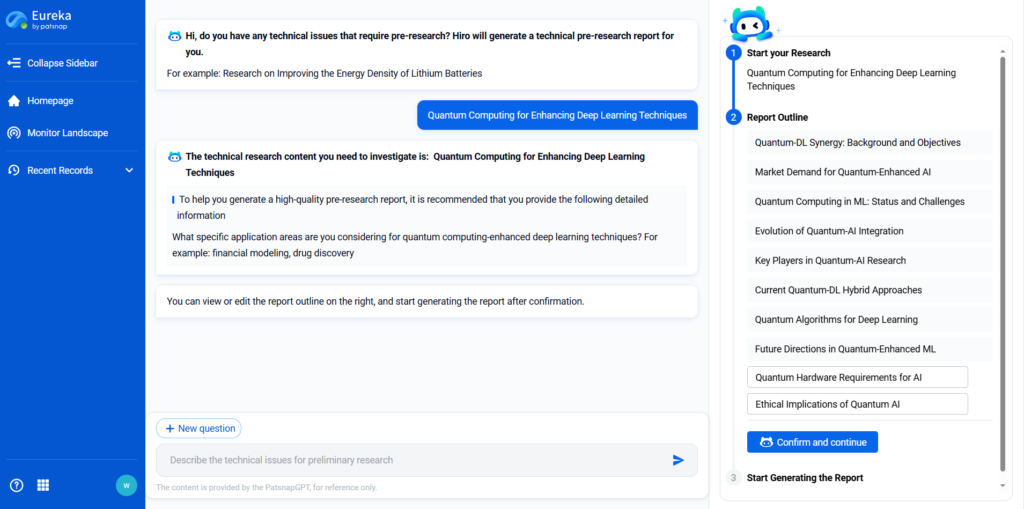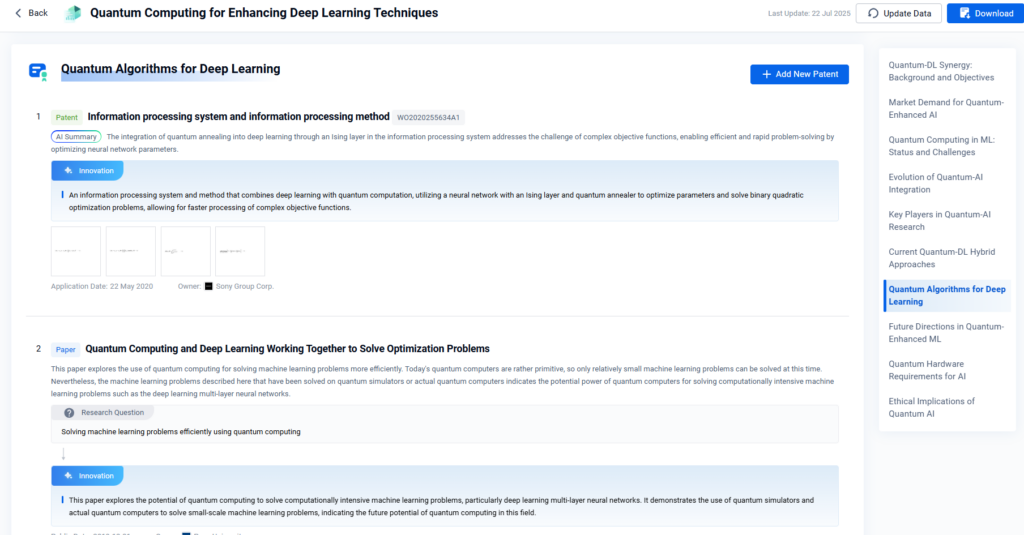
Quantum computing is reshaping the future of computation by exploiting the unique behaviors of quantum mechanics—superposition, entanglement, and quantum tunneling. Unlike classical computers that rely on binary bits, quantum computers operate using quantum bits or qubits, which can exist in multiple states simultaneously. This allows them to solve complex problems intractable for classical systems, making them particularly powerful in fields like cryptography, optimization, material science, and drug discovery.
As quantum hardware and algorithms rapidly advance, understanding its core principles, technological progress, and real-world use cases becomes essential for researchers, engineers, and decision-makers alike. This guide explores quantum computing’s foundations, cross-industry applications, and leverage PatSnap Eureka AI Agent to stay ahead of the curve.
Quantum Computing Principles & Architectures
Quantum computing systems are rooted in the following principles:
- Superposition: Qubits can exist in multiple states simultaneously.
- Entanglement: Qubits can be correlated such that the state of one instantly influences another.
- Quantum Interference: Helps in amplifying correct solutions while canceling out incorrect paths.
Major Hardware Approaches
| Architecture | Description | Key Players |
|---|---|---|
| Superconducting Qubits | Leverage Josephson junctions for fast gate operations | IBM, Google, Rigetti |
| Trapped Ions | Use electromagnetic fields to trap and manipulate ions | IonQ, Honeywell |
| Photonic Systems | Encode qubits using photons, enabling room-temperature ops | Xanadu, PsiQuantum |
| Topological Qubits | Use non-Abelian anyons for fault-tolerant computing | Microsoft (R&D) |

Comparative Advantages & Limitations of Quantum computing
Quantum computing offers a paradigm shift from classical computational models, but this shift brings both unprecedented advantages and formidable limitations. Understanding these trade-offs is crucial for stakeholders evaluating adoption or investment.
| Advantages | Details |
|---|---|
| Exponential Speed-up | Quantum algorithms like Shor’s and Grover’s offer exponential or quadratic advantages over classical counterparts in specific problems (e.g., factoring, search). |
| Parallelism via Superposition | Quantum bits (qubits) can represent multiple states simultaneously, enabling massive parallel computation in a single operation. |
| Efficient Optimization | Quantum annealing and variational quantum algorithms (e.g., VQE, QAOA) are promising for solving complex optimization problems in logistics, finance, and drug discovery. |
| Enhanced Cryptanalysis | Quantum capabilities could eventually break RSA and ECC encryption, prompting the need for quantum-resistant algorithms. |
| Material & Molecular Simulation | Quantum simulation can model molecular structures and quantum materials with accuracy unreachable by classical computers. |
| Interdisciplinary Integration | Enables new research paths across physics, mathematics, computer science, and engineering, fostering innovation. |
| Limitations | Details |
|---|---|
| Qubit Instability (Decoherence) | Qubits are prone to losing their quantum state due to noise, making error rates high and coherence times short. |
| Error Correction Overhead | Robust quantum error correction requires thousands of physical qubits to represent one logical qubit, posing scalability challenges. |
| Hardware Immaturity | Current quantum systems (NISQ devices) are limited in qubit count, gate fidelity, and noise tolerance. |
| High Operational Cost | Maintaining cryogenic temperatures and quantum control systems is expensive and energy-intensive. |
| Algorithmic Limitations | Many practical problems lack known quantum speed-ups; classical solutions remain competitive in many domains. |
| Talent & Tooling Gaps | Shortage of experts in quantum programming languages (Qiskit, Cirq) and limited development environments hinder progress. |
📌 As quantum hardware evolves and error rates fall, many current limitations may become less constraining—unlocking broader commercial and scientific viability in the near future.
Application Domains of Quantum computing
Quantum computing is no longer confined to theoretical models—it is increasingly finding concrete, cross-disciplinary applications across science, industry, and society. With qubit-based architectures evolving rapidly, organizations are exploring a new frontier of speed, precision, and security in data processing. Below are key sectors where quantum computing is already demonstrating impactful use cases. For each, we’ve curated actionable reports from Eureka that showcase cutting-edge developments, technical frameworks, and commercial pathways.
1. Artificial Intelligence & Machine Learning
Quantum computing introduces enhanced computational frameworks for model training, feature selection, and optimization in AI workflows. It offers parallelism for speeding up complex algorithms and helps in developing explainable, adaptive learning systems.
Key Applications:
- Quantum-enhanced machine learning algorithms
- Optimization in neural networks and support vector machines
- Adaptive and autonomous decision-making models
- Improved natural language processing and vision models
📍 Related Reports: Dive deeper into how quantum systems power the next generation of AI:
- Quantum Machine Learning: The Next Frontier in AI Development
- Quantum Computing for Enhancing Deep Learning Techniques
- Quantum Computing in Enhancing Natural Language Processing
- Techniques for Quantum Computing-Assisted Machine Translation

2. Cryptography, Security & Privacy
Quantum computing redefines digital security—posing both challenges to classical encryption and enabling ultra-secure quantum communication protocols.
Key Applications:
- Quantum-safe encryption and key distribution
- Enhanced threat detection algorithms
- Cloud and biometric security reinforcement
- Quantum-resistant hashing and authentication
📍 Related Reports: Understand how quantum is transforming the security landscape:
- Quantum Cryptography: Secure Communication in the Future Internet
- Quantum Computing Techniques for Enhanced Cyber Threat Intelligence
- Quantum Computing Techniques for Cloud Computing Security
- Quantum Computing for Advanced Encryption Methods
- Quantum Computing Techniques for Enhanced Cyber Threat Intelligence
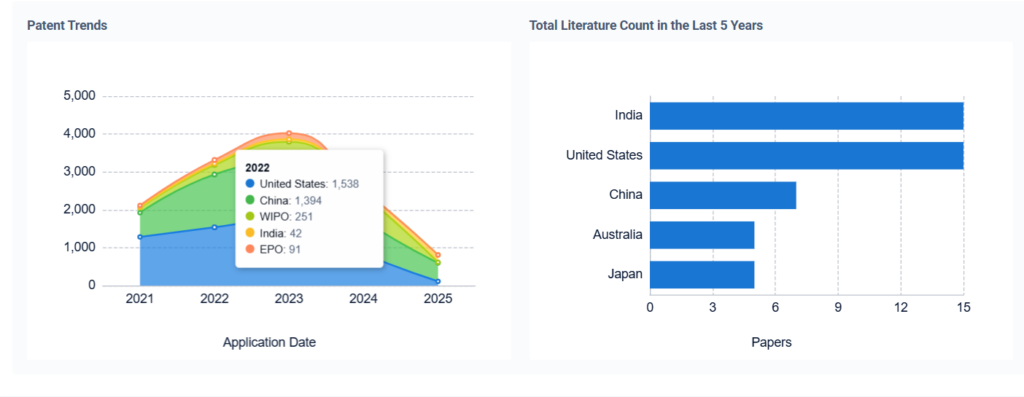
3. Healthcare & Life Sciences
Quantum computing revolutionizes biomedical research and clinical applications through high-fidelity simulation and complex biological data processing.
Key Applications:
- Molecular simulation and drug discovery
- Imaging diagnostics and genomic decoding
- Clinical decision support and personalized medicine
- Predictive healthcare modeling and remote diagnostics
📍 Related Reports: Explore how quantum computing is transforming health and biotech:
- Quantum Computing Applications in Medical Imaging Technologies
- Quantum Computing and its Effect on Personalized Medicine
- Applications of Quantum Computing in Genomics Research
- Quantum Computing and its Role in Human Genome Decoding
- Quantum Computing in Enhancing Brain Imaging Techniques
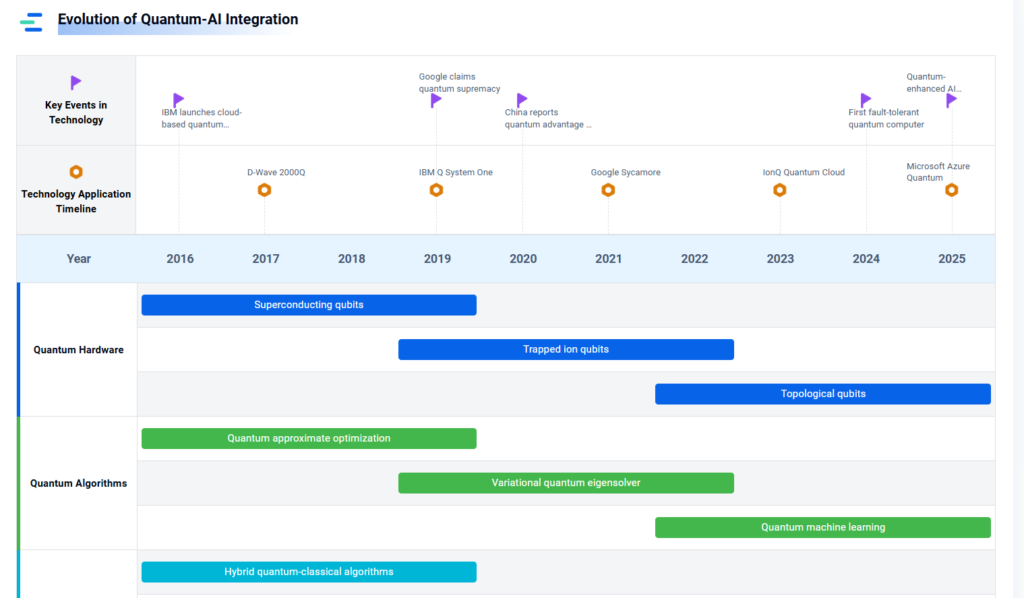
4. Climate, Environment & Energy
Quantum technologies play a vital role in modeling natural systems, optimizing energy usage, and driving environmental monitoring at unprecedented scales.
Key Applications:
- Climate change simulation and weather modeling
- Renewable energy system optimization
- Soil and water resource management
- Atmospheric and environmental health analytics
📍 Related Reports: Investigate quantum computing’s impact on sustainability:
- Quantum Computing Techniques for Climate Modelling
- Quantum Computing and its Role in Water Resource Management
- Quantum Computing Techniques in Atmospheric Sciences
5. Chemistry, Materials & Simulation
At the atomic level, quantum computers enable accurate modeling of chemical reactions and development of new materials with targeted functionalities.
Key Applications:
- Protein folding and enzyme design
- Thermodynamics and chemical engineering
- Nanomaterial and catalyst development
- Energy-efficient simulation for manufacturing
📍 Related Reports: Access advanced simulations and material design insights:
- Quantum Simulation for Understanding Complex Molecular Structures
- Quantum Computing and its Innovation in Chemical Engineering Processes
- Quantum Computing and its Application to Quantum Thermodynamics Research
- Quantum Computing Techniques for Advanced Thermal Management Solutions
6. Finance, Risk & Forecasting
Financial institutions are exploring quantum techniques to gain strategic advantage in pricing, risk modeling, and fraud detection.
Key Applications:
- Portfolio optimization using quantum annealing
- Real-time financial market simulation
- Credit scoring and risk analysis
- Transaction anomaly detection
📍 Related Reports: See how quantum is reshaping finance:
- How Quantum Computing Transforms Financial Forecasting Models
- Quantum Algorithms for Effective Risk Management Strategies
7. Big Data & Advanced Analytics
Quantum systems enable exponential speed-ups in data processing, real-time insights, and computational modeling.
Key Applications:
- Real-time multivariate data analytics
- Distributed system optimization
- Decision-making and traffic simulation
- Enhanced support systems in enterprise settings
📍 Related Reports: Discover how quantum enhances data processing:
- The Future of Quantum Computing in Big Data Analysis
- Quantum Computing in Real-time Data Processing
- Quantum Computing Techniques for Better Traffic Flow Analysis
- Quantum Computing for Enhancing Distributed Computing Models
Emerging Innovations in Quantum R&D
Innovation is accelerating across academia, startups, and tech giants. Noteworthy trends include:
- Quantum Error Correction (QEC): Development of surface codes and cat qubits to improve coherence times.
- Hybrid Quantum-Classical Systems: Integration of quantum co-processors in classical HPC workflows.
- NISQ Devices: Leveraging Noisy Intermediate-Scale Quantum (NISQ) devices to deliver early advantage without full fault tolerance.
- Quantum Cloud Platforms: Democratizing access through services like IBM Q, AWS Braket, and Azure Quantum.
- Photonics & Topological Computing: Promising platforms for room-temp, fault-tolerant computation.
📍 Eureka Insights on Emerging R&D:
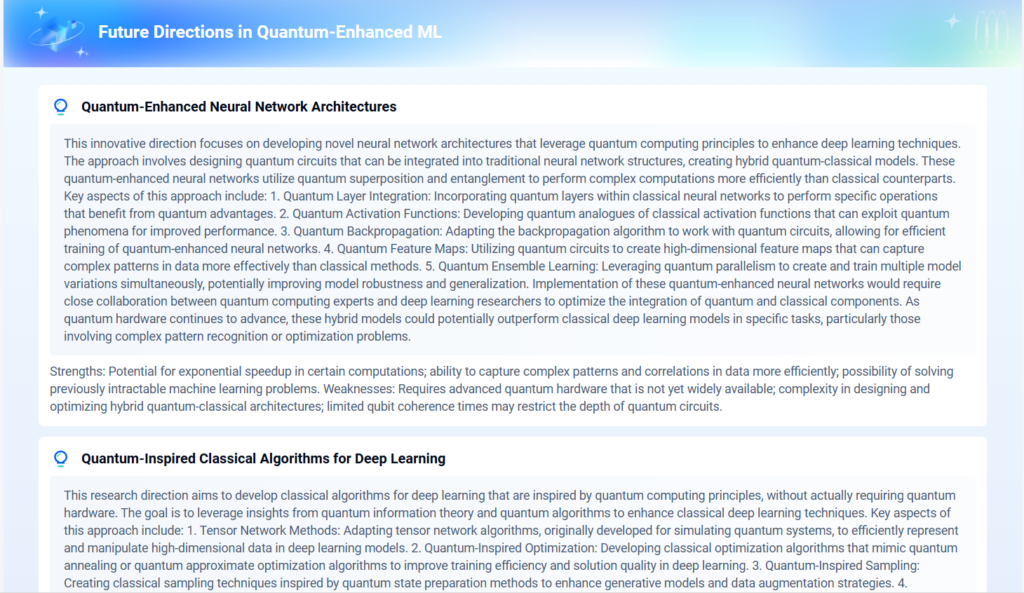
Frequently Asked Questions (FAQ)
Classical systems use binary bits (0 or 1), while quantum systems use qubits that can be 0, 1, or both simultaneously. This parallelism enables exponential computational power for specific problems.
While NISQ-era devices are usable today, full-scale quantum computing may take 5–10 more years depending on breakthroughs in scalability and error correction.
Popular options include Qiskit (IBM), Cirq (Google), PennyLane, and Q# (Microsoft).
Drug discovery, cybersecurity, finance, and materials science are among the first to benefit from practical quantum applications.
Yes. Cloud platforms like IBM Q Experience and AWS Braket allow researchers and students to experiment on real quantum hardware.
Ready to Power Innovation with Quantum Intelligence?
PatSnap Eureka AI Agent empowers researchers and engineers with curated reports and real-time insights into quantum computing technologies—tracking IP trends, algorithm breakthroughs, and white space opportunities.
👉 Book a Eureka demo and unlock the quantum advantage for your next R&D challenge.
